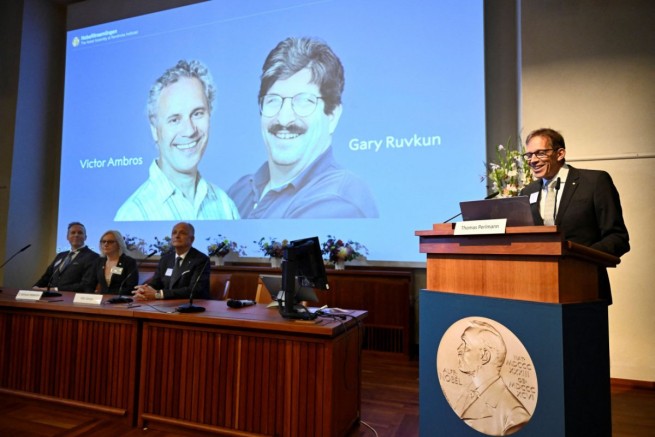In 2024, the Nobel Prize in Physiology or Medicine was awarded to American scientists Victor Ambros and Gary Ravkan for their contributions to the study of microRNA and its role in post-transcriptional gene regulation.
Gary Ravkan, who made significant contributions to molecular biology and genetics, is 72 years old. He is a member of the National Academy of Sciences, the United States Academy of Medicine, and the American Philosophical Society. Victor Ambrose, a member of the US National Academy of Sciences and the American Academy of Arts and Sciences, is also 70 years old. He is known for his research in the field of microRNAs and has collaborated extensively with Gary Ravkan.
Reportedly on the Nobel Committee websitethe prize was awarded for the discovery fundamental principle of regulation of gene activity.
Every cell in the human body contains the same genetic information recorded in DNA. However, despite this, the cells of the human body differ greatly from each other in their form and function.
For example, the electrical impulses of nerve cells are different from the rhythmic beating of heart cells. Liver cells, which are a powerful metabolic center, are different from kidney cells, which filter urea from the blood. The light-sensing abilities of retinal cells are different from those of cells that produce antibodies to fight infection.
These differences arise through gene expression, the process by which genetic information from DNA is transferred to messenger RNA (mRNA) and then to the cellular machinery to produce proteins. The process of transcription, which transfers genetic information from DNA to mRNA, was discovered in the mid-20th century and has become one of the most fundamental scientific discoveries in the field of biology.
Without the ability to control gene transcription, every cell in the body would be identical, so microRNAs have played an important role in the evolution of complex life forms.
However abnormal regulation of microRNAs may contribute to cancer development and certain diseases, including congenital hearing loss and bone disorders. Ambros and Ravkan conducted their research on the nematode worm Caenorhabditis elegans. They experimented with a mutant form of the worm that did not develop certain cell types. As a result, they isolated tiny fragments of genetic material that were essential for the development of the worms. These fragments were called microRNAs.
MicroRNAs are small RNA molecules that can influence which genes are active and which are not. They can block genes from working by attaching to mRNA molecules and stopping them from working.
The process that Ambros and Ravkan discovered not unique to worms. It represents the main component of life on Earth.
Last year, the Nobel Prize in Medicine or Physiology was awarded to Katalin Kariko from Hungary and Drew Weissman from the USA for their discoveries that made it possible to develop a new type of RNA-based vaccine. The use of RNA vaccines to prevent COVID-19 has helped save tens of millions of lives during the two-and-a-half year coronavirus pandemic.







More Stories
Corfu. This is unforgettable: a mother sold her 12-year-old daughter to men for 50-100 euros (video)
Greece: No births have been registered in villages and small islands for many years
At 80, she has completed her bachelor's degree and is preparing to begin her master's degree.